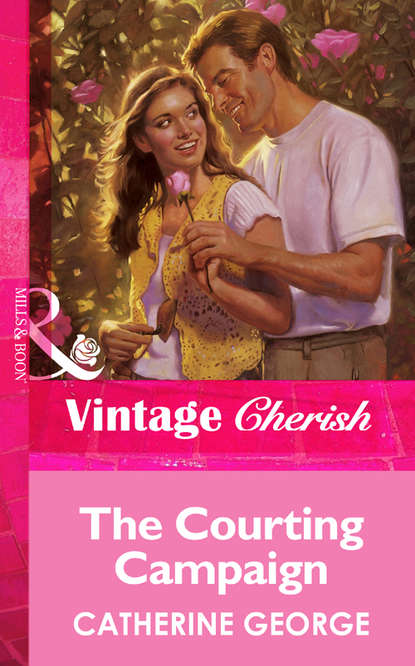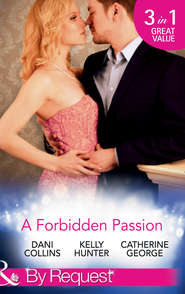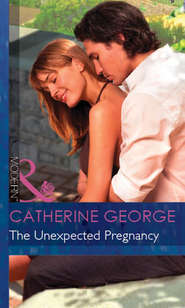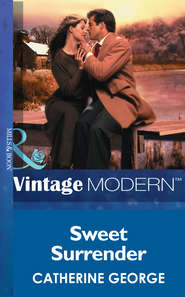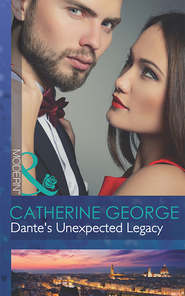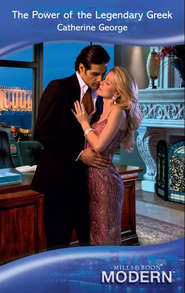По всем вопросам обращайтесь на: info@litportal.ru
(©) 2003-2024.
✖
The Courting Campaign
Автор
Год написания книги
2018
Настройки чтения
Размер шрифта
Высота строк
Поля
‘If he did he was damn good,’ said Dr Meadows. ‘The Barclays are new in the district, by the way. Bought Ashdown House a few months ago. They’re shelling out a small fortune on doing it up.’
‘They haven’t shelled any out at Conway’s,’ said Hester with regret.
‘Shouldn’t think they’re straight yet. I went out to visit Mrs Barclay not long ago. The place was still a shambles.’ The doctor looked at his watch. ‘Must dash. Might get some lunch in before afternoon surgery.’
Hester made her farewells and went out into the sunshine. The small Cotswold town was full of visitors during the summer months, and on a sunny market day like this the streets were thronged. She exchanged her horn-rims for sunglasses, and walked briskly up the steep main thoroughfare. At the top of the hill she caught sight of the Barclay twins looking at sports equipment in a shop window, in company with their father. Relieved that the eye-catching Barclays were engrossed in the window display, Hester crossed the road to avoid an encounter likely to embarrass all of them—herself included.
She turned into the cobbled walkway where attractive shops clustered together near the medieval arches of the Chastlecombe market hall. At one end a glassvaulted arcade housed vendors of expensive clothes and leather goods as well as a small restaurant, aromatic with the scent of freshly-brewed coffee. But in the cobbled square itself the name CONWAY in italic capitals, was emblazoned above a large premises which sold porcelain and furniture. Some of the latter was the better type of mass-produced product, but the pieces displayed in the windows were made by local craftsmen and drew customers nationwide.
The shop was full of customers, and Hester hurried through to the cloakroom at the back to change the navy wool jacket for a cool white blouse. On her way back into the shop she saw David Conway at the desk in the office, involved in a heated telephone argument. He grinned at her, pointed an imaginary gun at the phone and went on arguing. Hester grinned back, blew him a kiss and hurried off to relieve her beleaguered staff.
After the sale of some hand-painted plates, a David Conway sofa table and a small, exquisite Kilim rug, Hester assented with relief when David emerged from his workshop to suggest a late snack in the bar of the King’s Arms.
While David went up to the bar Hester found a seat at a table near the window to watch the world go by, glad to relax for a while after the demands of the morning.
‘Busy in court today?’ asked David as he joined her.
‘Fairly.’ She accepted her tall glass of mineral water with gratitude, smiling at him, but the smile faded as she saw the father of the Barclay twins ushering his sons to a table. To her embarrassment he caught sight of her and bowed slightly, just as he’d done in court.
David raised an eyebrow. ‘Someone you know?’
‘Not really.’
The arrival of their sandwich lunches saved Hester from explanations, and the rest of the meal passed with discussion of the new commission David had been given that morning.
‘A twelve-foot dining table, a dozen chairs, two sideboards and a credence table,’ he said with satisfaction. ‘The argument was over a delivery date. The lady seemed to think I could knock them up in a couple of weeks. If, I told her, she wants the hand-crafted perfection of all David Conway pieces, it will take a little bit longer than that. Even,’ he added, ‘with the invaluable Peter doing the pedestrian bits.”
Hester grinned. ‘Is the customer happy about it?’
‘Happy, no. Resigned, yes.’
‘It’s a big order to do in a hurry. You’ve got a lot of work on already, David,’ said Hester anxiously.
‘Can’t afford to turn any away!’ He reached out a hand and took hers. ‘Don’t worry, love. I’m as healthy as a horse. Honestly. Ask Tom Meadows.’
‘I would, too,’ she said tartly, ‘but he’d never breach patient confidentiality.’ She withdrew her hand to finish her drink. ‘I’m still thirsty. I’d like some coffee. Want some?’
‘No, thanks.’ David rose to fetch it for her, but she waved him back.
‘Stay there and finish your lunch. I’ll get it.’
When Hester turned away from the bar with her coffee she realised the twins’ father was watching her.
‘A secret admirer?’ teased David, when she got back to the table.
‘He was in court this morning,’ said Hester, and changed the subject to the new furniture commission.
All the while David was expounding on the design he intended for the new order, his dark eyes bright with his usual, irresistible enthusiasm, Hester said the right things in the right places but couldn’t help noticing that the Barclay twins—who were in her direct line of vision on the other side of the bar—looked very subdued. Their father appeared to be giving them a lecture while they ate. Which wouldn’t do them any harm, she thought, feeling far more sympathy for the other youngsters who’d been brought up before the bench that morning, all of whom could have done with some of the parental guidance the Barclay twins were receiving.
Hester brought herself up sharply, and concentrated on David. In her year of sitting on the bench she’d made it a strict rule to put the cases from her mind once she left the court.
‘Come on, beautiful dreamer,’ said David, downing the last of his lager. ‘Time we got back to the grind.’
On their way out of the bar their route took them past the Barclays’ table, where both boys looked embarrassed when they saw Hester. She smiled a little, managing not to look in their father’s direction, and went out into the sunshine with David.
‘Nice-looking lads,’ he commented. ‘Visitors, I suppose.’
‘No. Their family moved into Ashdown House a few months ago.’
‘How do you know them?’ he asked curiously. ‘Or shouldn’t I ask?’
‘That’s right—you shouldn’t.’
He grinned, then whistled in surprise as they found the shop full of tourists admiring the porcelain display Hester had taken such pains to arrange. ‘Now you’re back from your bench I’ll get back to mine,’ he said hurriedly, and left her to see to the welcome influx of customers with her usual friendly attention.
Hester enjoyed her side of the business. David was the creative artist, but she was a skilled buyer, a born saleswoman, and in her element when it came to dealing with the public. Conway’s employed two women in their forties as assistants—Iris, who worked parttime, and Sheila, who worked full-time and did the accounts. The other employees were Mark, who was in his twenties and possessed of a physique which came in very useful for hauling furniture around and Peter, who assisted in the workshop. Mark also accompanied Ted Burrows, the driver, when deliveries were made in the smart van with CONWAY printed in gilt on a field of dark green.
Life for Hester Conway was busy and full, both professionally and socially. She went on regular visits to trade fairs all over the country, sometimes attended various functions with David—who was a Rotarian, and president of the local chamber of commerce—and when business was slacker in the post-Christmas lull holidays were spent in some warmer clime than the UK. She was also a member of the history society, the tennis club and contributed time to charity work, as well as attending regular additional periods of training for her unpaid function as a lay magistrate. Some days were so hectic that a few extra hours in the twenty-four would have been welcome.
As they shut up shop at five-thirty David reminded her they were due at a wine-tasting party at Chastlecombe House at eight-thirty, in aid of the local children’s home.
‘I’m off to see Father first,’ he said, looking at his watch. ‘I’ll go straight there, have supper with him at The Priory and meet you at the wine-tasting later.’
‘Right. Give him my love and tell him I’ll see him on Sunday.’
Robert Conway, David’s father, had been the founder and driving force of the business, but twelve months earlier he’d decided to retire. He’d sold his house and acquired a room at The Priory, which was more like a five-star hotel than the luxurious retirement home it actually was. He still drove his car, visited Lords cricket ground once a year for a test match and went off on a cruise whenever the fancy took him. His family took turns in entertaining him at Sunday lunch every couple of weeks or so, and the arrangement worked well for everyone, since Robert still took a keen interest in the business and was only too glad to step in whenever Hester and David needed a break.
Hester lived on the outskirts of town. Pear Tree Cottage was small, but with a sizeable garden with high hedges which enclosed a riot of colour at this time of year. Hester ate a swift salad dinner then went through the nightly ritual of watering her latest batch of bedding plants, wishing she could just potter about in the garden all evening. She was tired after the double drain of a morning in court before the session in the shop. It was an effort to shower and change for the charity evening, where she would see the same familiar faces that she encountered at pretty much every function she attended in the close-knit community of Chastlecombe.
Chastlecombe House retained all the Cromwellian severity of its origins, both inside and out. Since Mrs Cowper, its owner, was very kind in lending it out for charity events Hester knew it well. By the time she arrived the great hall, with its long trestle-table and heavy, carved furniture, was crowded, but two faces new to the community stood out. One of them was already familiar from the morning session in court. The other was a rather haggard, attractive woman who, from the striking resemblance, could only be the Barclay twins’ mother. And even from a distance it was easy to see that Mrs Barclay was pregnant.
‘How charming you look in that shade, Hester,’ said Mrs Cowper, emerging from the crowd to greet her. ‘Used to call it dusky pink when I was a girl. You know everyone, dear, so do mingle. Though if you fancy making yourself useful we could use an extra hand to pass round the nibbles.’
Hester agreed with alacrity. She took up two beautiful silver dishes—George III, she noted with respect—and made for the nearest group with her canapés.
‘Hester!’ said Tim Galbraith, son of Philip. ‘You look ravishing.’
To prevent his usual kiss Hester thrust the silver dishes at him, grinning. ‘Hands off, Tim. Have one of these nibbles.’
‘I’d rather nibble delectable you, Hester,’ he assured her, relieved her of one of the dishes and accompanied her from group to group round the crowded room, flirting with her outrageously as they went.
Tim Galbraith ran the local garden centre. In sight of forty, he remained happily unmarried and was such a charmer that every single woman of eligible age chased him with fervour. To date he remained unattached but never neglected—since he wined and dined several of the ladies in question in strict rotation, never giving any of them reason to believe he cared for one more than another. Hester collected more supplies, then circulated, with Tim again in tandem. As they approached the Barclays Hester became gradually aware that the twins’ father was watching her with something like disapproval.
She thrust her dish at Tim. ‘Carry on for me, would you, please? I see David’s car coming down the drive.’
‘Only if you swear to return to me later.’ He grinned. ‘Or should I ask David’s permission?’
The evening was pleasant, as always, and Chastlecombe House was a dramatic backdrop for the occasion, but Hester took pains to avoid meeting the newcomers. Mr Barclay would be bound to mention that she was a Justice of the Peace, which would be embarrassing for his wife, and it was with some relief that she saw them take leave of Mrs Cowper quite early. Because Mrs Barclay was pregnant, of course, thought Hester. And not overly young to be expecting a baby, either. The twins were eighteen, which presumably would put their mother in the forty-something age group, which was common enough these days—but the lady had looked very weary.





